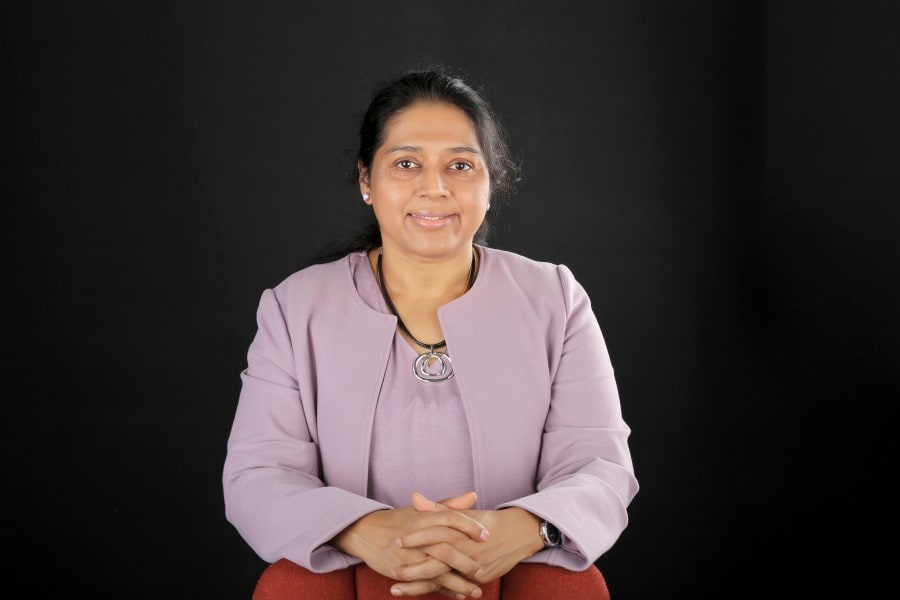
Women in technology
What the International Women's Day celebrations mean to women all over

Sumana Iyengar- CEO and Co-Founder of Goavega Software India Pvt Ltd
Even as the UN aims to start conversations around “Women in leadership: Achieving an equal future in a COVID-19 world”, for this year’s women’s day, we continue to strive for building an ideal, gender inclusive and diversified workplace, across sectors, especially in IT. As per the Zinnov-Intel India Gender Diversity Benchmark report released in December 2019, highlighted that women forms a mere 26% representation in IT and ITES roles at corporates across India – a relatively low number compared to the overall 31% representation in non-technical roles. The report further highlighted that the Indian corporate ecosystem saw only 11% representation of women in senior leadership roles, 38% in junior level, and 20% in mid-level roles, thanks to additional push for diversity through policy reforms by the government. But in order to change this, we need a well-structured and definitive plan that is focused not only on the internal environment, shaped by human resources and company policies, but also a larger shift in the business ecosystem!
As a woman in a leadership role in one of India’s fastest growing Tech Service providers in the country, I strive every day to ensure there is not only better representation of women in our company but also a safe, motivated and growth focussed work environment for all employees. With well-designed programs for up-skilling, leadership grooming and re-skilling our women employees, which constitute 45% of our workforce at Goavega, we are committed to drive innovation and value for our customers, by leveraging the diversity and creative minefield that is our human capital. As a new age, and fast growing IT service provider, with a focus on agility and building value for our customers and external stakeholders, we are committed to building a motivated and diversified workforce that is driven by need to excel and grow. Our women, therefore, play a vital role in designing innovative solutions, leading project development and execution teams, and driving winning team performances that lead to consumer delight and loyalty!
However, it has not been an easy task. Taking from my own my journey leading to this role, I can vouch that several hurdles and gender stereotypes still exist that need shattering, on a daily basis! As we continue to focus on solving the gender parity in corporate India through policy change, women entrepreneurs are pretty much struggling it out on their own, in a competitive start-up/ SME/MSME ecosystem, which is a ruthless one on its own! And these go way beyond a struggle for equal pay. For women entrepreneurs in the IT sector, the challenges start from being taken seriously as professionals who can deliver efficient results, on time, to being considered for competitive projects, the fight for equal opportunity, is a real one.
Considering the opportunities to work with GIC’s and Off-shore captive centres, for example, holds huge potential for all IT service providers. Currently, stringent empanelment and closed door policies of several international Global In-House Centres (GIC’s), or off shore captive centres, have been posing a challenge for smaller, local IT service providers. Empanelment and hiring offers greater propriety, operational control, lower cost of operations and risk ownership, to GIC’s. However, it is also marred with functional challenges like understanding local socio-cultural sensitivities, delivering timely results, and having access to expert talent pool, which was a part of the parent company. On the other hand, a pool of smaller, local technology service providers who are experts in the demand delivery, can drive excellent customer experience, are efficient, and deliver effective results, as compared to in-house hiring of local talent or empanelment of very selective external vendors. By reviewing empanelment parameters, such that it allows equal opportunity for men and women led smaller, local tech service providers, GIC’s can gain access to wider range of diversified and versatile solutions and services, that are driven by insight, and ultimately drive customer experience for the GIC/Captive centre clients.
Equal share of voice in policy making, is another area that lacks adequate woman representation. While there have been several policy amendments and initiatives that aim to resolve challenges like finance, up-skilling and re-skilling, and education, very little has been done to actually offer them a level playing field and exposure to international markets and trade. As per the Start-up India program launched in 2016, the government announced 10% of 10,000 Cr. corpus fund to be earmarked exclusively for women led start-up’s, and help them in building a strong ecosystem that nurtures innovation and start-up’s.




